Make Movies, Not War: How To Make It as a Military Tech Adviser in Hollywood
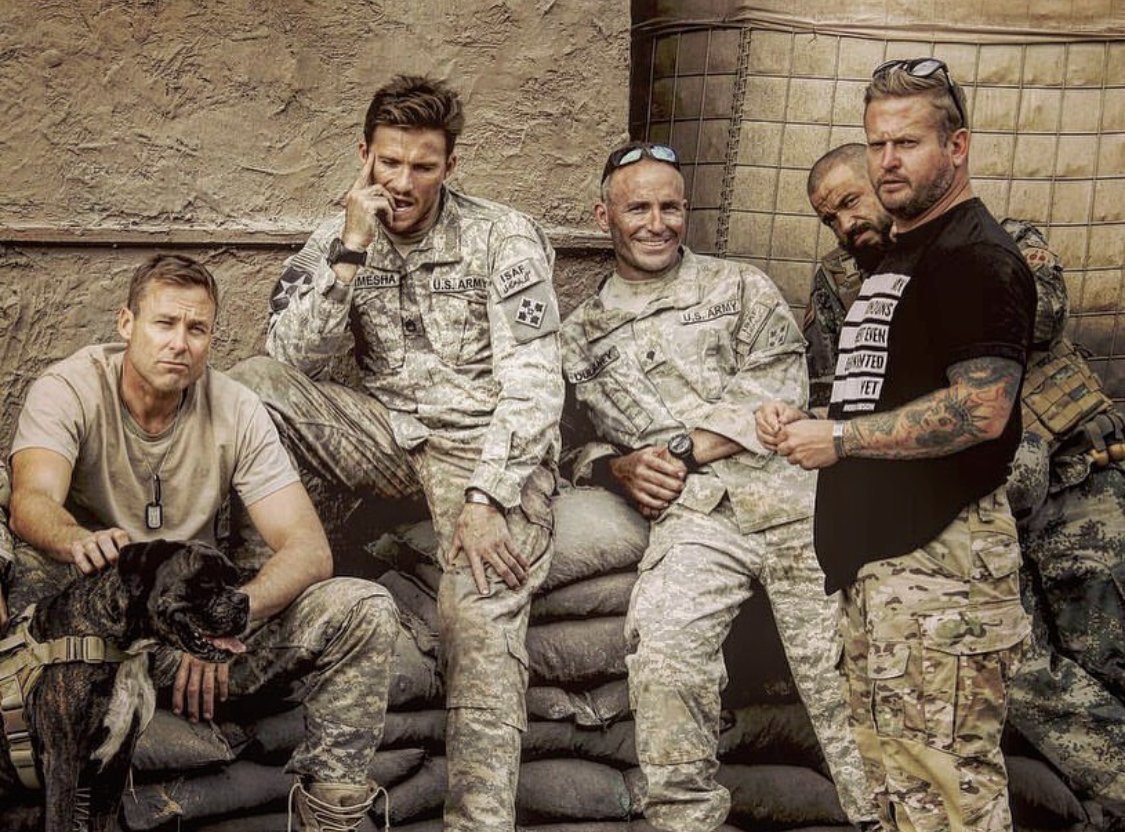
The author, right, on the set of The Outpost with the actors he coached for the movie. Photo courtesy of Jariko Denman.
I got into it the same way most guys I know did — that old cliche about preparation meeting opportunity, aka luck. A friend of a friend of a friend was working on a television series about a place and time of which I have a pretty healthy knowledge base. He was hired as the tech adviser because of his network, but he recognized his base of knowledge needed some supplemental know-how to make for an authentic end product. So shortly after I retired from the military, I was called to help out with preproduction.
I showed up for what was supposed to be a couple of weeks, but I showed my worth and was kept on for the run of the show. I loved the work but knew the space was saturated. High hopes, low expectations.
After a long post-retirement vacation, I moved to Los Angeles with no real leads and direction other than the connections I’d made on that one show. But those connections led to another job, which led to another, and so on.
When I was a newly promoted master sergeant, I sat in the auditorium with a bunch of other Ranger NCOs and listened to Command Sgt. Maj. Jody Nacy (now retired) talk to us about leadership and navigating an Army full of combat veterans with varying levels of experience holding various positions of responsibility. He said something that has stuck with me now almost 15 years later: “There is a big difference between having experiences and being experienced.”
That is the best way I can describe the preparation needed to be a great military tech adviser in Hollywood. Become experienced; put in your time. You won’t be able to sustain a livable income if you rely solely on your niche grouping of personal anecdotes. It may carry you through one production that is specific to your experiences, but it’s not enough to encompass all branches and time periods of military content. That comes not only through applicable experience in joint service and agency environments but also through having a robust network of friends and colleagues stacked up over a long career in the military.
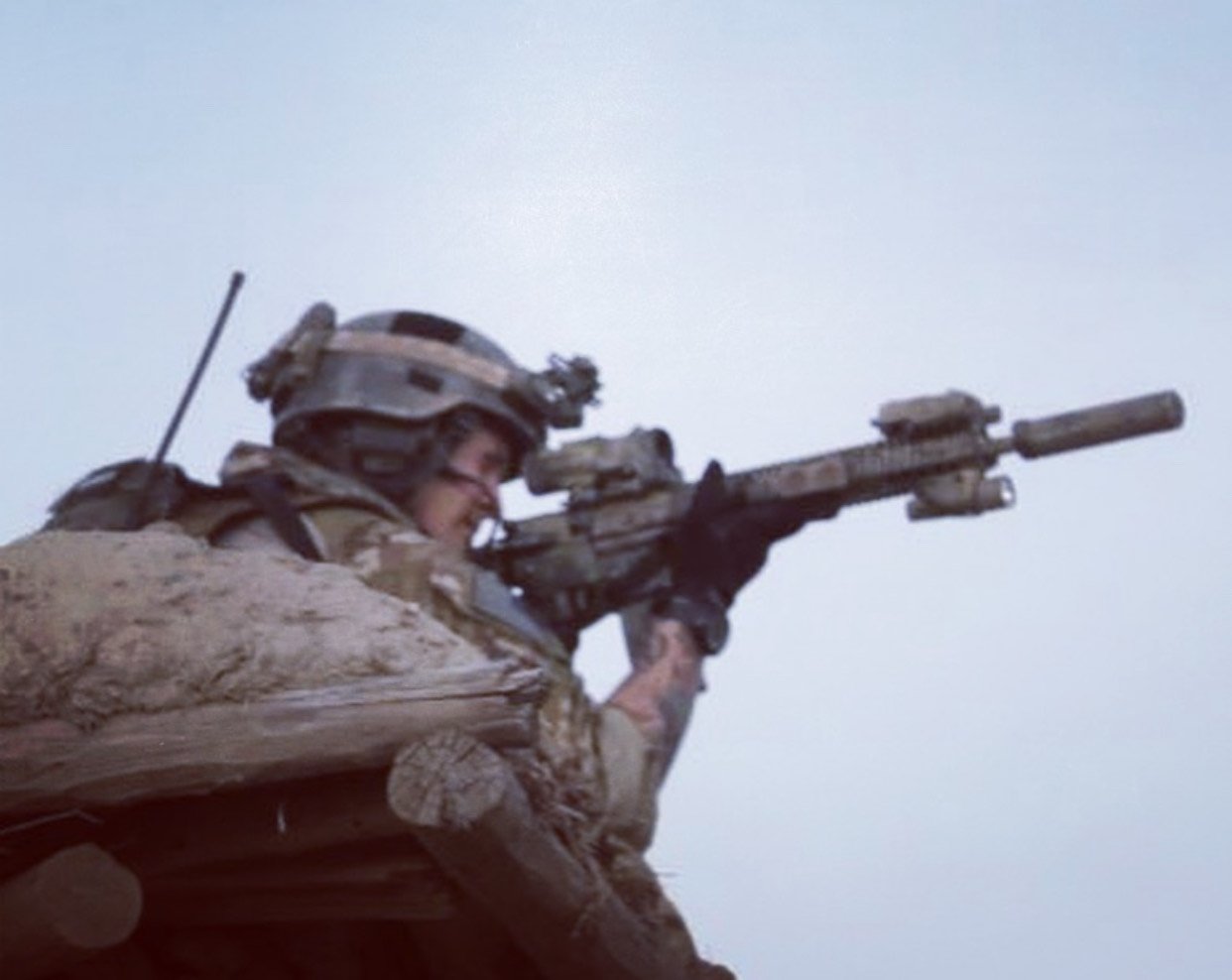
I spent more than 15 of my 20 years in the Army as part of the Ranger Regiment, and I have yet to work on a movie specifically about Rangers. But through a varied set of assignments within the regiment — friends I served with reaching every corner of the military, federal, and local law enforcement world — I have a network and knowledge base that may not have every answer but damn sure knows where to find it.
While you’re in the military, don’t just be in the military — be a student of your job. Know your unit history, military history, and world history. Again, the chances are slim that your specific job, no matter how long you did it, will encapsulate everything you’ll need to be familiar with when you arrive on set.
You can, of course, take a position on a movie for which you don’t have the knowledge base necessary to do a good job. People do that using a personal connection to a producer or director and a craftily worded resume to get a foot in the door. But then you’re part of the problem. Your lack of knowledge partnered with a trusting production team will lead to you pulling things straight out of your ass. We have all seen — and made fun of — those movies. Don’t be that guy.
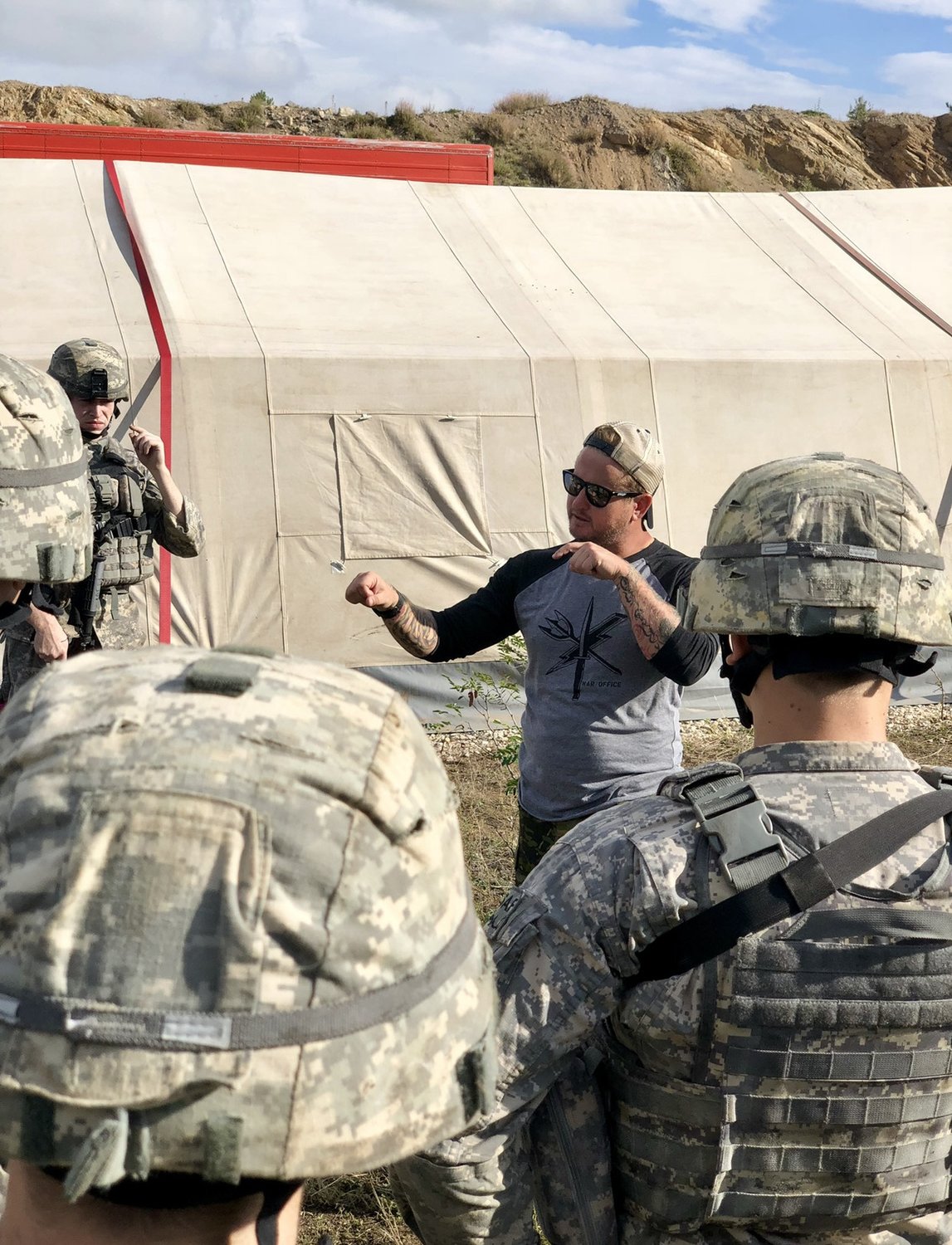
In addition to knowing your shit militarily, you should also know something about the world in which you hope to use that experience. Watch movies. Lots of them. Lots of times. Soak up all the movies and movie knowledge you can. From storytelling, screenwriting, and cinematography to sound and production, having this basic knowledge will come in handy later.
Now, the hard part: getting your foot in the door. If you aren’t insanely lucky enough to have something fall in your lap through a series of fortunate events, then you’ll need to take the bull by the horns. Most of the hiring in Hollywood, if not all, is by word of mouth. If you don’t have connections inside the industry, make some.
If you’re a separating service member with a desire to get into the business, use your GI Bill to go to film school and figure out a route to get onto any production you can — whether that’s as a production office PA, stunt performer, grip, or set medic. Just get on sets and do your job better than anyone who’s ever had it. That will make folks remember you.
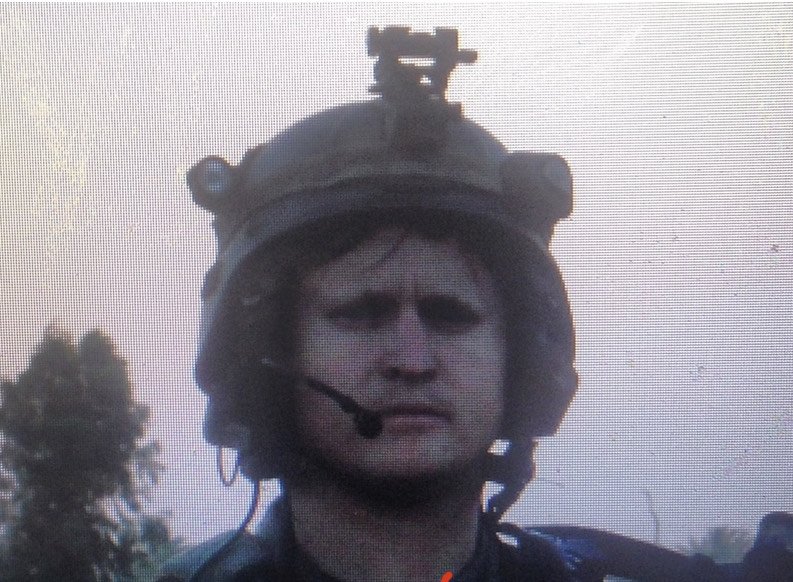
Once you’ve been hired, a big question is how much involvement you as the tech adviser have in the production. In a perfect world, you should be involved as early as possible. That means advising on screenplay development to ensure authenticity from the beginning, as well as developing a solid understanding of the story you’ve been hired to help tell. That level of involvement is practically a unicorn, and any changes to the story will have to be navigated and influenced at different stages of the movie process. These phases, for a TA, are broken into basically three parts: preproduction, principal photography, and postproduction.
Preproduction, or prep, is generally the most stressful phase of production and where your people skills will be the most useful. If you’re doing the job properly, you will be empowered to liaise with basically every department head. But keep in mind, these department heads most likely haven’t ever had a tech adviser dipping their wick in their business, so you may get some pushback. But if you think positively and provide solutions instead of problems, things usually buff out. Most people in the industry take a lot of pride in their work, so showing them that you’re also committed to creating the best product — instead of just rattling off a list of all the bad decisions they’ve made — will go a long way.
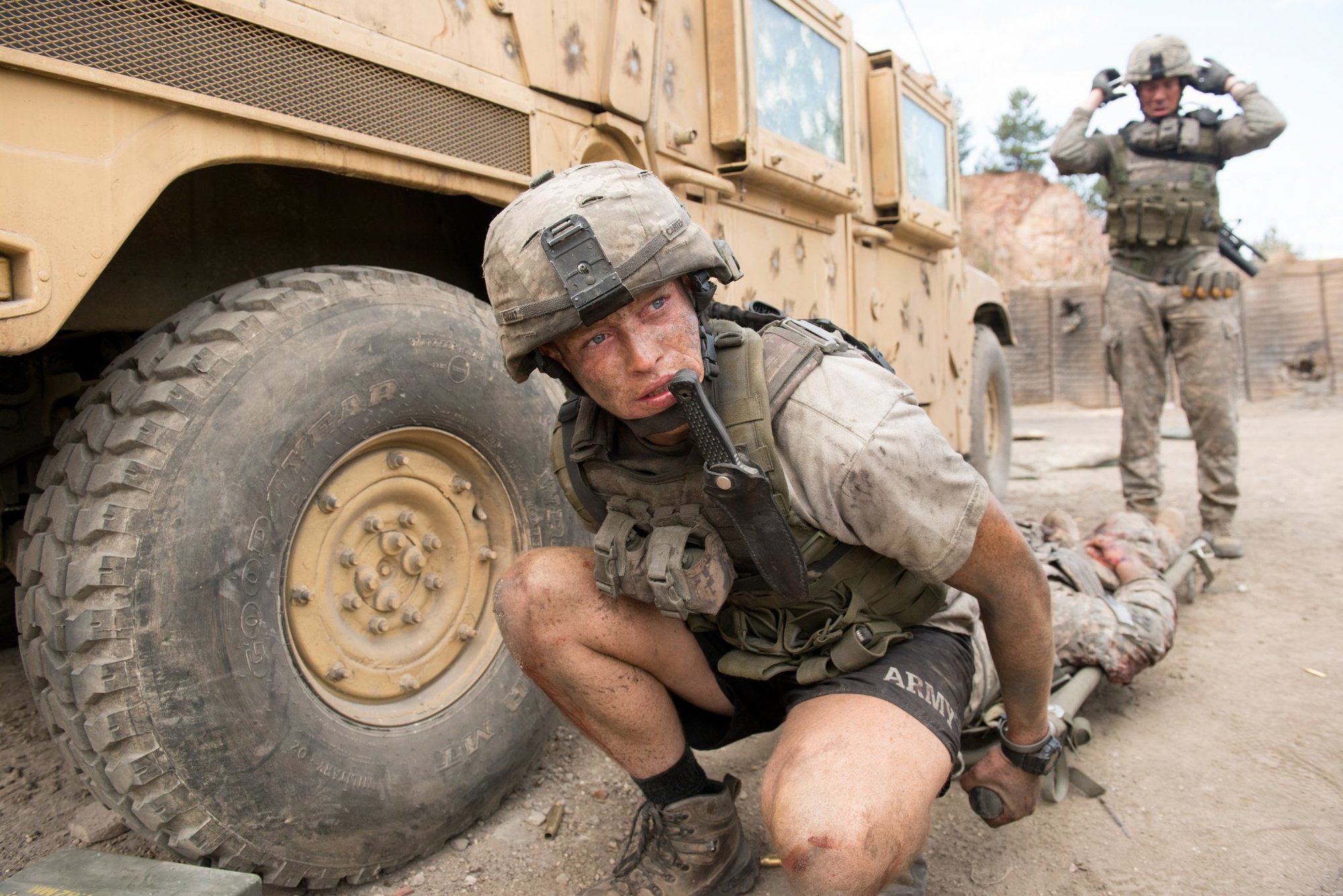
Think of the director as your CO. They have to trust and empower you, so you need to earn it by understanding the story and their vision for it. And again, by giving them solutions and not problems. Their support is imperative when you’re advising every other department head. Always be honest, but don’t overload them.
You’ll also be dealing with props and wardrobe — and, again, the earlier you get there, the better. If props are working a couple of weeks before you arrive and they order 100 helmets that are absolutely wrong, you’ll have to throw a wrench in a bunch of people’s Wheaties. During this phase, you’ll advise props and wardrobe on what to order, assist them in finding it, and keep the director apprised on how it’s all going.
Special effects and stunts are two more departments you’ll meet during prep. It’s good to get a feel for their vibe and what you’ll need to watch for. Keep in mind that even though a realistic explosion may be “right,” it may not provide the appropriate impact at that point of the story. Also, 99% of the world doesn’t know how lame it actually looks when a grenade goes off. The stunt coordinator will be the person who blocks out all of your action for safety and cameras. They’re the director’s adviser on all things safety, so it is important that you are on the same page.
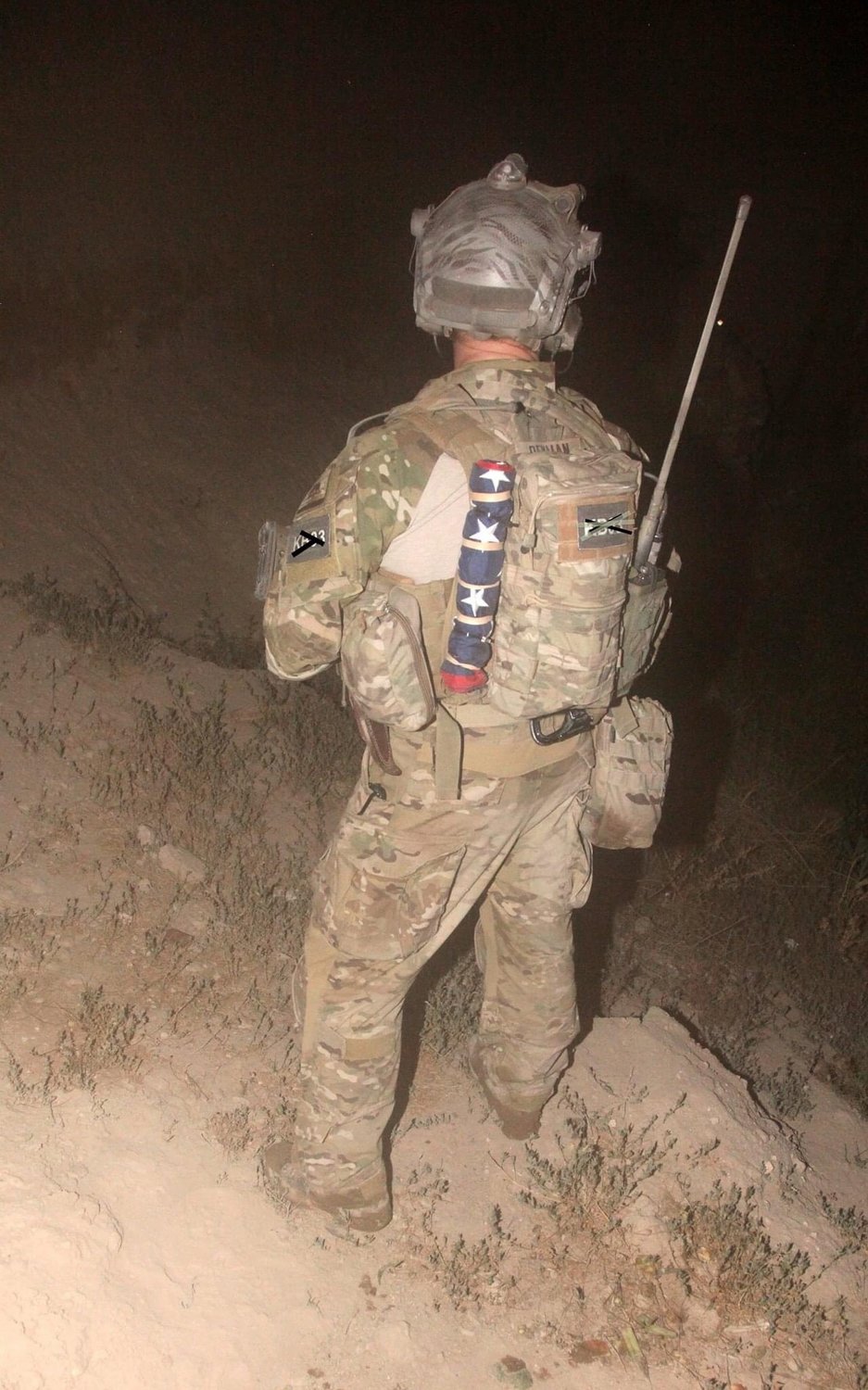
Training the cast gets the most attention during prep. People don’t know what they don’t know, and in Hollywood, if an actor has ever shot a gun, they think they’re trained. Actors may be gone on other productions, in wardrobe for fittings, or rehearsing dialogue, or maybe they just don’t show up. But your job is to figure it out. The other factor to consider is their comfort level. Things we take for granted can be far outside the average thespian’s comfort zone. Make sure you have a solid grasp of their character, and prioritize what they need to be proficient at for the role.
Once prep is over, you roll into principal photography. This is where things start to look more like a military operation: hundreds of people operating autonomously toward a shared goal with little room for error. The stakes aren’t life or death, but mistakes are costly. Hours are sometimes measured in hundreds of thousands of dollars — or more.
Every day you’ll get a “call sheet,” which is sort of an op order for the day; it tells you basically everything you need to know about what will be happening. It has the shots that will be filmed that day, who will be there, and what time to show up. When you get it the night prior, you’ll know who you’ll need to talk to and prep with when you arrive and how much time you’ll have to do it.
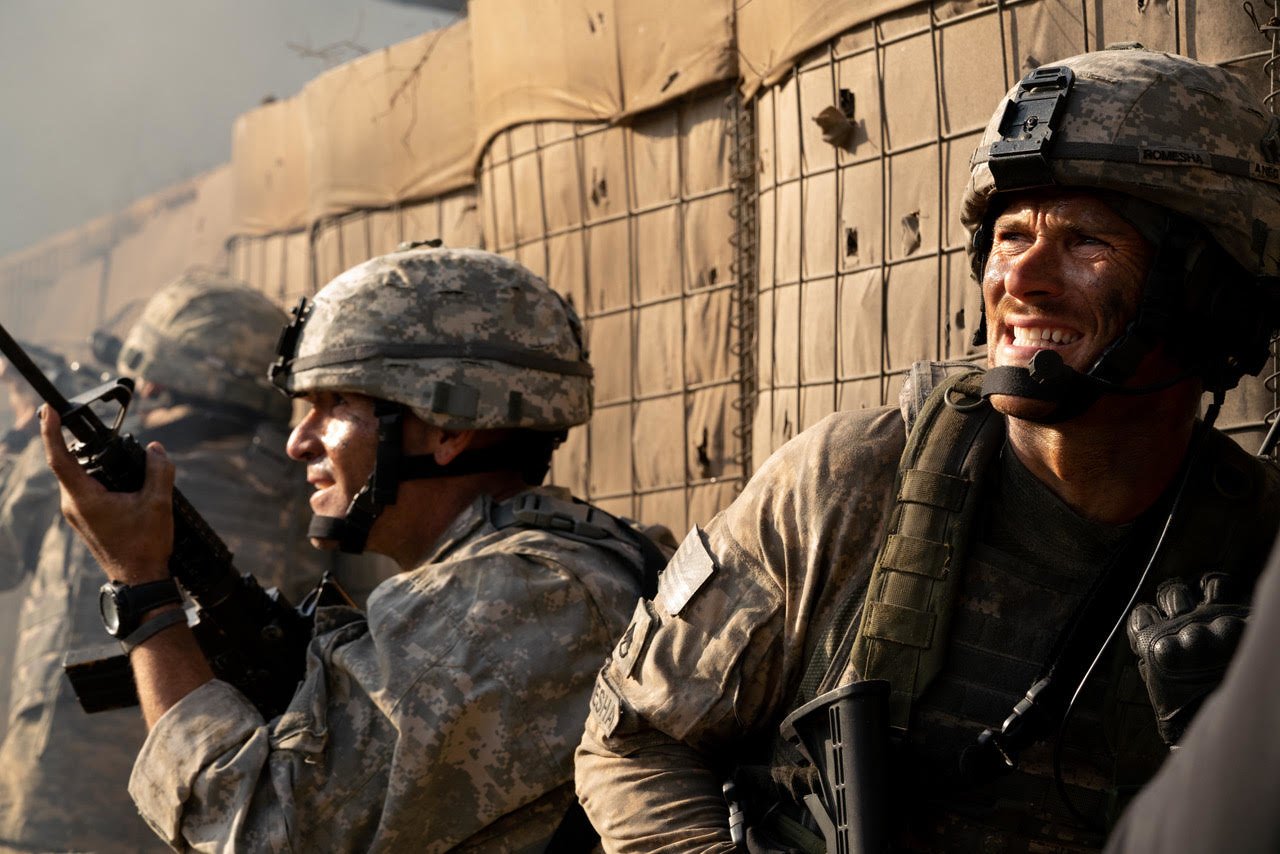
Once the day is set and the director yells “Action!” you’re there to answer any and all questions about the intricacies of the scenes. It can be fast-paced and hectic, or you may go an entire day without any feedback or notes for the director, cast, or crew. Sometimes the day runs smoothly and you are there for 10 hours as scheduled; sometimes you’ll be there for back-to-back 20-hour days. It’s a fun and exciting time, and you’ll flex not only your knowledge base but also your leadership skills.
After principal, the movie goes into postproduction, where a TA’s involvement is usually very limited. However, the things you may be asked to advise on — such as sound scrubbing and the addition of CGI and visual effects — are pivotal. You’ll often be asked to screen rough cuts of the film and provide feedback, as well as help with promotion once a release date is announced.
Overall, this niche area of filmmaking is short on glory, and you won’t get rich doing it. A rigid state of flexibility is imperative — working in film is a seismic change from working in uniform. People are always late, they mean about 50% of what they say, and “leadership” is basically nonexistent. But with some reframing, you’ll realize that no one’s life is at stake because of the eccentricities of the cast or crew. Expectation and outcome management are essential to staying sane on a production. And remember how damned lucky you are to even be on a set doing what you do.

Jariko Denman is a contributing writer for Coffee or Die. He is a retired US Army Ranger and deployed to combat 15 times in Iraq and Afghanistan from 2002 to 2012, amounting to 54 months of total combat experience as part of a Joint Special Operations Task Force. He now lives in Los Angeles and has advised on several major motion pictures, national ad campaigns, and television series as well as continuing to train and work within government and tactical industries.
BRCC and Bad Moon Print Press team up for an exclusive, limited-edition T-shirt design!
BRCC partners with Team Room Design for an exclusive T-shirt release!
Thirty Seconds Out has partnered with BRCC for an exclusive shirt design invoking the God of Winter.
Lucas O'Hara of Grizzly Forge has teamed up with BRCC for a badass, exclusive Shirt Club T-shirt design featuring his most popular knife and tiomahawk.
Coffee or Die sits down with one of the graphic designers behind Black Rifle Coffee's signature look and vibe.
Biden will award the Medal of Honor to a Vietnam War Army helicopter pilot who risked his life to save a reconnaissance team from almost certain death.
Ever wonder how much Jack Mandaville would f*ck sh*t up if he went back in time? The American Revolution didn't even see him coming.
A nearly 200-year-old West Point time capsule that at first appeared to yield little more than dust contains hidden treasure, the US Military Academy said.












